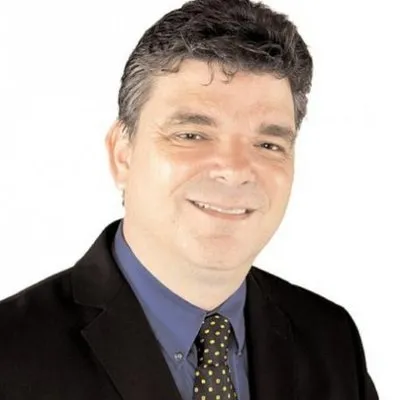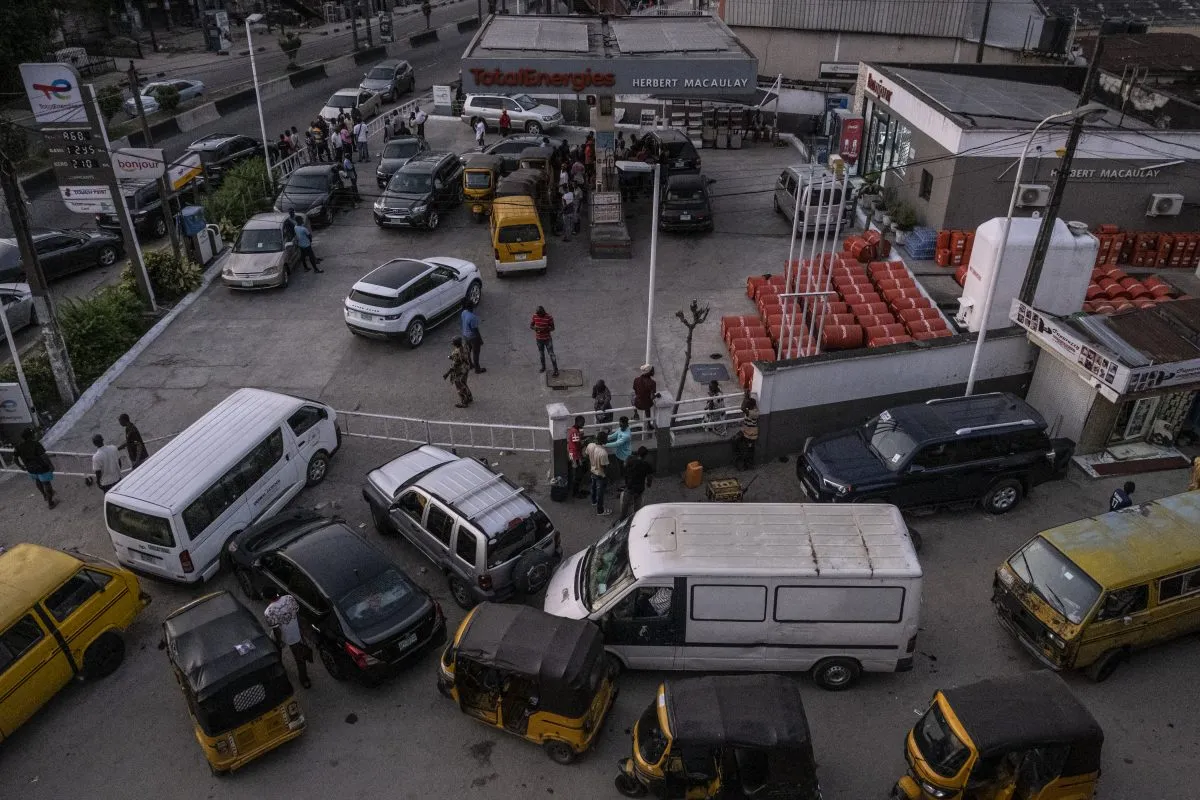A new deal struck last week between the Dangote Refinery and the Independent Petroleum Marketers Association of Nigeria (IPMAN) – representing many of the small players at the pumps – aims to bring down the price of petrol emerging from the plant.
But the head of one of Nigeria’s biggest petrol station owners says the deal – under which the refinery will provide around 240 million litres of petrol monthly to IPMAN’s members – is unlikely to significantly help Nigerians who have been suffering since the removal of fuel subsidies earlier this year. Before the removal, fuel was around 200 naira per litre ($0.12) – it is now pushing 1000 naira at the pump.
“Honestly, I don’t think it is going to make much difference in price,” says Abiola Lawal, the CEO of energy company Eterna.
“They (marketers) still need to pay for taking the product from the Dangote Refinery over the last mile, so the transportation cost must feature,” he argues.
Eterna has a separate deal to buy refined products from the new refinery and is not covered by the IPMAN deal. Eterna employs 1,000 workers supplying its 85 petrol stations across 21 states in Nigeria; by contrast, many of the companies represented by IPMAN own only one or two petrol stations.
“The only thing they eliminate is the throughput charges from third party depots,” Lawal adds.
Refinery’s difficult start
The Dangote Refinery opened for business in September after years of development delays but has not had an easy start – at one point having to import foreign oil to make up a shortfall in local supply.
The refinery – when it is at full capacity of 650,000 barrels – will replace the country’s four ancient and ramshackle refineries, which has led to the country exporting crude oil to other continents and reimporting the refined products at a premium.
Lawal – who was appointed to lead Eterna in April – believes a Dangote refinery at full capacity will be good for the fuel industry in Nigeria, which suffers heavily from price and currency volatility.
He says six months ago it cost 3bn naira to finance the moving of a shipment of petrol; that same load would cost 16bn naira to finance today.
“It is good news for the country…$20bn refinery built by the richest man in Africa – he took the bull by the horns! This is an African solution to an African problem.”
Gaining market share in a cut-throat business
Eterna not only runs petrol stations, but also manufactures and distributes lubricants, oil products and chemicals. As the new CEO, Lawal’s job is to increase the company’s market share in a cut-throat business.
In this vein, Eterna has made acquisitions including a facility in Lagos capable of storing 34 million litres of petroleum products, and an aviation fuel dump near the airport in the capital Abuja.
Sabotage of the oil supply and attacks on pipelines in Nigeria is one of the many hazards Lawal is keeping his eye on.
“That issue is definitely one we have to tackle with the right technology and security. I hope the new government is putting some thoughts around how to protect our infrastructure,” he says.
“There is remote monitoring of pipelines that can be used along with drone technology in remote areas.”
Lawal cut his teeth in the upstream oil and energy business with buccaneering energy outfit Oando.
By 2010, Oando had revenues of $3bn and Lawal was its group strategy officer.
Fossil fuels here to stay?
On the subject of green energy, Lawal believes that Africa should stick with fossil fuel for some time yet – even when the rest of the world is shying away.
“I think the future of energy in Africa should be driven by pragmatism and reality. It cannot be compared to other continents. For example the drive to abandon fossil fuel for greener energy is premature for Africa,” he says.
“We should be moving towards green energy, but I don’t think we should be completely walking away from fossil fuels. Africa has oil and gas yet we are still being patronised as poor countries, we need to industrialise and get rid of poverty and leverage the fossil fuel resources that we have.”
Want to continue reading? Subscribe today.
You've read all your free articles for this month! Subscribe now to enjoy full access to our content.
Digital Monthly
£8.00 / month
Receive full unlimited access to our articles, opinions, podcasts and more.
Digital Yearly
£70.00 / year
Our best value offer - save £26 and gain access to all of our digital content for an entire year!

 Sign in with Google
Sign in with Google 



